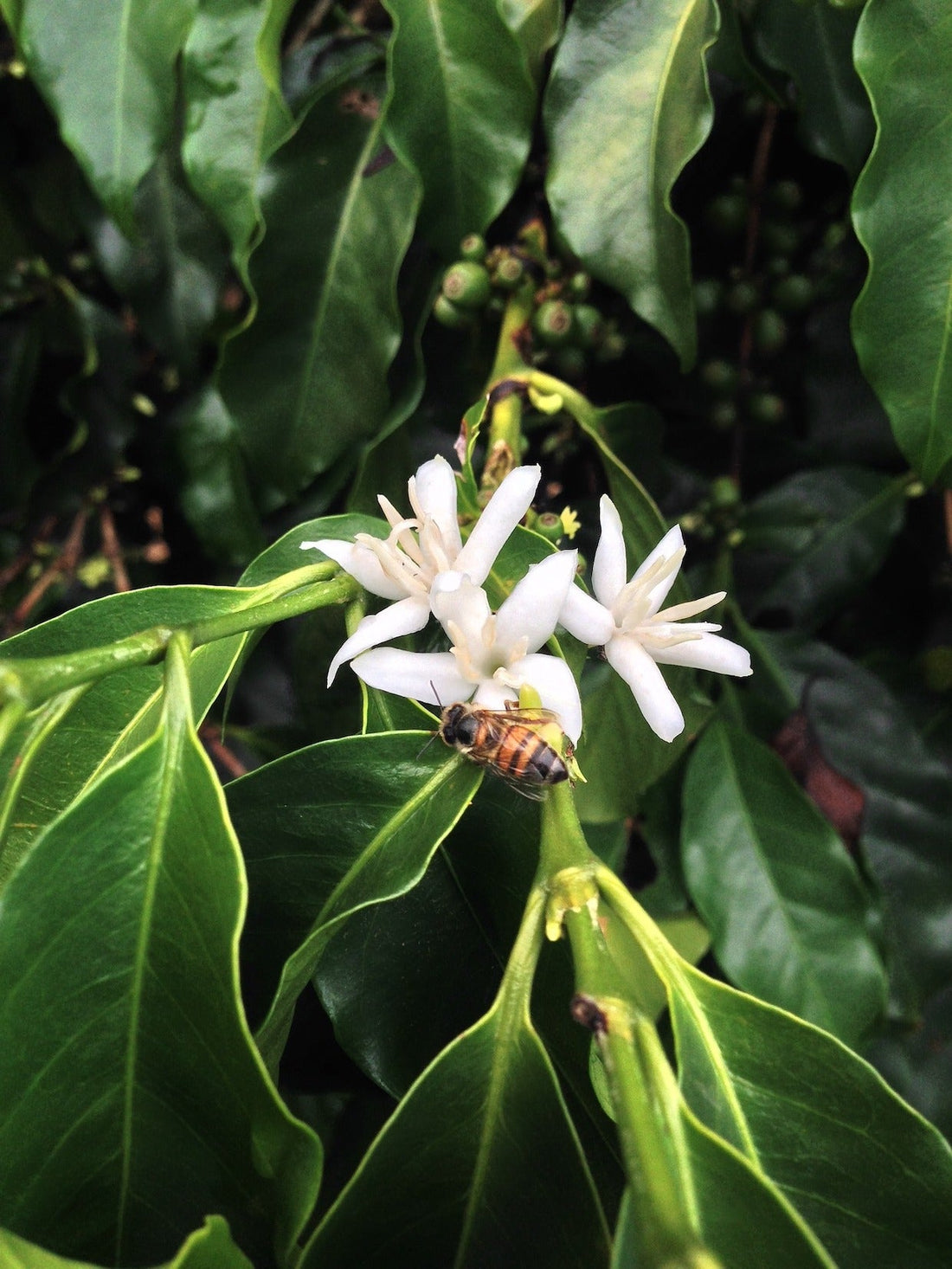
Critical Contribution: How Bees Improve Single Origin Coffee Crops
Share
The impact of climate change extends beyond governments and large industries, affecting every link in the supply chain and negatively impacting our ecosystem. Notably, gourmet coffee, a significant factor in its development, relies heavily on climate conditions. Climate variability influences coffee productivity, quality, and competitiveness directly and indirectly. Consequently, small and medium-sized producers of Specialty Colombian coffee are strategically investing in alternative crops that create shaded microclimates. These microclimates serve as a source of sustenance and consumption for Specialty Arabica Colombian coffee growers. Beekeeping also presents a valuable resource for single-origin coffee growers. Bees play a pivotal role in our ecosystem, pollinating crops and maintaining balance and productivity. Pollination is crucial for food production, human well-being, and ecosystems, and its efficiency is directly proportional to the number of pollinators.
A 100% Colombian coffee farm, particularly small and medium-sized ones that exclusively produce coffee, faces significant vulnerability if prices decline, production decreases due to climatic factors, or pest or disease outbreaks like rust. Therefore, it is imperative that these producers establish alternative means of generating revenue that provide differentiation and enable them to receive fair trade Colombian coffee benefits.
Bees native to coffee plantations, which thrive in the shade of trees, contribute to improving fecundity and preserving the genetic diversity of the surrounding tropical forests. However, many farmers in Colombia have transitioned from shade coffee plantations to sunny plantations, seeking to enhance productivity. While this change has yielded positive outcomes, it has also led to a reduction in biodiversity. Additionally, these plantations employ less pesticides and fertilizers, utilizing the decomposition of tree leaves as a natural source of nutrients. Nevertheless, climate change, characterized by rising temperatures and altered rainfall patterns, can diminish the suitability of coffee-growing lands. Furthermore, the impact of climate change will extend to all coffee-growing areas, affecting the bees that play a crucial role as pollinators.
Bees are essential pollinators of coffee plantations, providing vital welfare to the crop and generating economic benefits for producers, including increased yields, improved bean quality, and additional income from honey sales and by-products.
Two key benefits of pollination are:
Open pollination, which involves the transfer of pollen between flowers by bees, results in a diameter of 1.60 centimeters for the coffee cherry. In contrast, self-pollination, the conventional method of fertilization in coffee plantations, yields an average cherry diameter of 1.34 centimeters.
Open pollination enhances the quality, flavor, and aroma of the beans. Studies have shown a higher concentration of sugars in coffee fruits resulting from open pollination.
Therefore, the development of sustainable coffee production systems is imperative. These systems should be based on a diversified agroforestry model, incorporating multiple species of shrubs, bushes, plants, associated crops, and service, fruit, and forest trees. These additional plants within the coffee plantation serve as an alternative food source when economically important plants are not in bloom.
